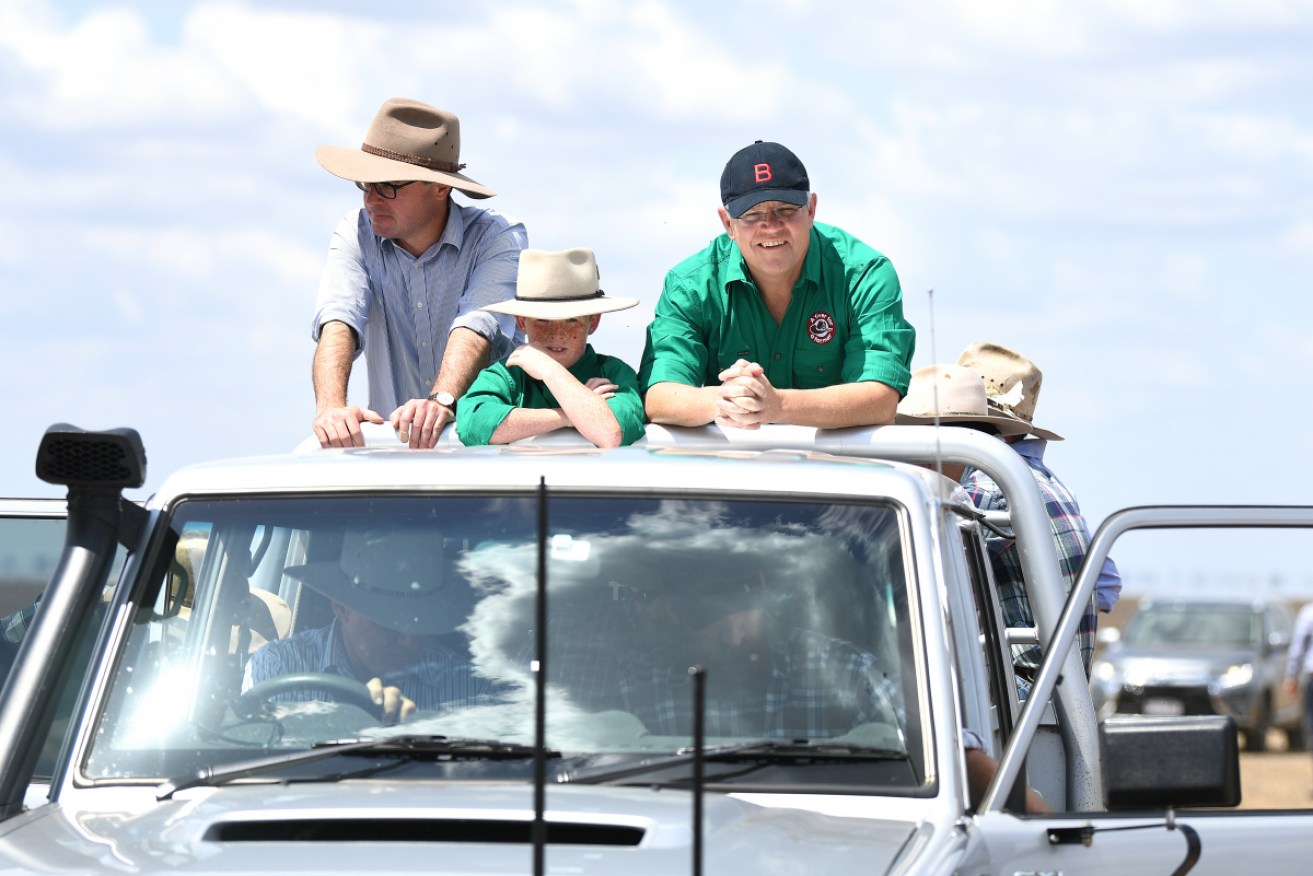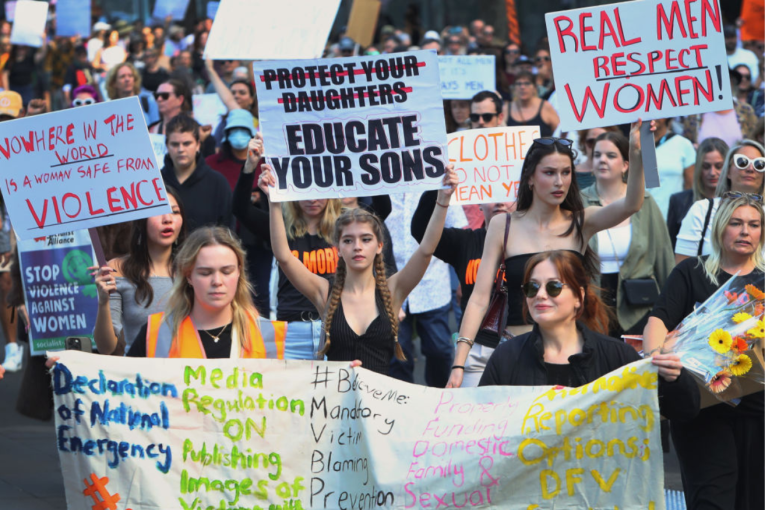Scott Morrison’s drought relief could cause him bigger problems in the city


The PM's drought tours are simply highlighting the effects of global warming Photo: AAP
It’s no secret that Prime Minister Scott Morrison likes to style himself as a latter-day John Howard. But it’s become clear there’s one big lesson from the Howard years that Mr Morrison seems to have missed.
That is the political risk created by the drought. Not from farmers struggling with the extended dry, but from city and suburban folk whose raised awareness of the drought has led them to demand more action from the government on climate change.
At first glance it might seem like a strange connection to make.
Climate action campaigners admit it’s challenging to get people to focus on the threat of climate change when the effects cannot easily be felt or seen. That’s often why those same activists are quick to point out the link between climate change and bushfires, or major storms when they occur.
However, back in PM Howard’s day, it was the introduction of water restrictions across the nation due to the ‘Millennium Drought’ of 2001 to 2009 that gave many people their first direct experience of drought and led them to make the connection with climate change.
John Howard signed the Kyoto Treaty and announced he would introduce an emissions trading scheme during that period, not because he was a born-again environmentalist but because he knew water restrictions were increasing community pressure for the government to do something about climate change.
Scott Morrison is now dealing with a dry spell that may become worse than the Millennium Drought, which was described at the time as the worst since European settlement.
The PM may not have to contend with the same level of water restrictions, but today’s voters have instead become sensitised to climate change by yearly bushfire emergencies, severe floods and recurring images of apocalyptic fish kills.

Voters are attuned to images of drought, fires and dead fish. Photo: AAP
This is reflected in a recent opinion poll commissioned by progressive think tank, The Australia Institute, which found the proportion of people who believed that increased droughts and flooding was a result of climate change had increased from 32 per cent last year to 40 per cent.
Meanwhile an Essential Poll reported this week that it found “effects of climate change” was one of the top three concerns for personal safety nominated by survey respondents.
Climate change had increased as a concern from 7 per cent in 2017 to 20 per cent this year. The other top two concerns were terrorism (21 per cent) and car accidents (21 per cent).
This sensitivity to climate change will only be strengthened by Mr Morrison’s frequent media events in drought-ravaged locations.
The PM may believe his drought tours deliver brownie points for looking after ‘our farmers’, particularly after the #ScottMorrisonWhereAreYou campaign on social media. But in reality this publicity simply projects vivid images of global warming in action onto our screens and into our consciousness.
Farming ‘heroes’
What’s more, shovelling cash into the pockets of farmers might keep the Nationals happy but such largesse doesn’t go down well with the rest of the nation.
This is particularly the case when other forms of welfare are pitifully insufficient, and the recipients are demonised as bludgers while our farming ‘heroes’ are lionised – whether or not they’ve made any efforts to drought-proof their operations.
No-one suggests that farmers will waste their welfare at the pub or on drugs, as Social Services Minister Anne Ruston recently said of Newstart recipients, even though using welfare payments to prop up an unviable farm is no less a waste of taxpayer dollars.
This voter agitation at the special treatment of farmers, while doing little to deal with climate change, could rapidly escalate into a political problem for the PM, particularly if the ‘quiet Australians’ join the ranks of those underwhelmed by his performance.

John Howard was adept at sensing voter sentiment. Photo: Getty
Voters would be justified in wondering what’s the point of ‘having a go’ if farmers are a protected species. They know the PM wouldn’t extend the same generosity to failing family businesses in other sectors that have been operating for decades.
Once alert, quiet voters will expect Scott Morrison to prove he’s ‘having a go’ at reducing the nation’s greenhouse emissions, not just in the electricity sector.
Unlike John Howard, who had the political antennae to sense a shift in voter sentiment and the wisdom to ‘lean left’ when required, Scott Morrison doesn’t appear to have the same skill set.
If he did, the PM would know his constant reminders of the drought risks awakening climate concerns in the very voters he depends upon to stay relaxed and comfortable.








